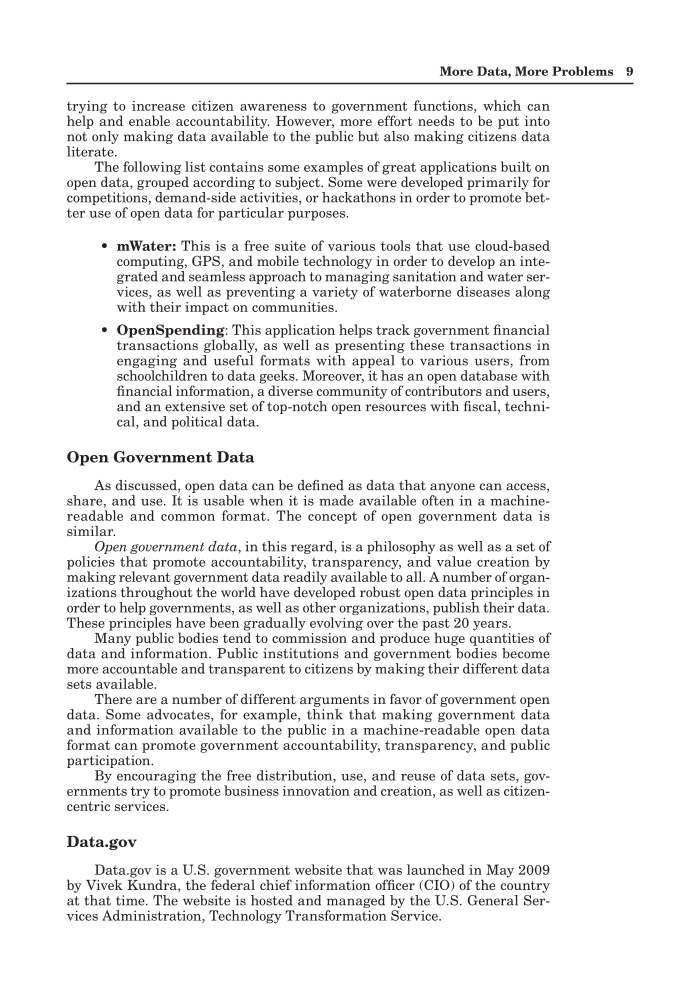More Data, More Problems 9 trying to increase citizen awareness to government functions, which can help and enable accountability. However, more effort needs to be put into not only making data available to the public but also making citizens data literate. The following list contains some examples of great applications built on open data, grouped according to subject. Some were developed primarily for competitions, demand-side activities, or hackathons in order to promote bet- ter use of open data for particular purposes. • mWater: This is a free suite of various tools that use cloud-based computing, GPS, and mobile technology in order to develop an inte- grated and seamless approach to managing sanitation and water ser vices, as well as preventing a variety of waterborne diseases along with their impact on communities. • OpenSpending: This application helps track government financial transactions globally, as well as presenting these transactions in engaging and useful formats with appeal to various users, from schoolchildren to data geeks. Moreover, it has an open database with financial information, a diverse community of contributors and users, and an extensive set of top-notch open resources with fiscal, techni- cal, and political data. Open Government Data As discussed, open data can be defined as data that anyone can access, share, and use. It is usable when it is made available often in a machine- readable and common format. The concept of open government data is similar. Open government data, in this regard, is a philosophy as well as a set of policies that promote accountability, transparency, and value creation by making relevant government data readily available to all. A number of organ izations throughout the world have developed robust open data principles in order to help governments, as well as other organizations, publish their data. These principles have been gradually evolving over the past 20 years. Many public bodies tend to commission and produce huge quantities of data and information. Public institutions and government bodies become more accountable and transparent to citizens by making their different data sets available. There are a number of different arguments in favor of government open data. Some advocates, for example, think that making government data and information available to the public in a machine-readable open data format can promote government accountability, transparency, and public participation. By encouraging the free distribution, use, and reuse of data sets, gov- ernments try to promote business innovation and creation, as well as citizen- centric services. Data.gov Data.gov is a U.S. government website that was launched in May 2009 by Vivek Kundra, the federal chief information officer (CIO) of the country at that time. The website is hosted and managed by the U.S. General Ser vices Administration, Technology Transformation Service.
Document Details My Account Print multiple pages
Print
You have printed 0 times in the last 24 hours.
Your print count will reset on at .
You may print 0 more time(s) before then.
You may print a maximum of 0 pages at a time.





















































































































































































